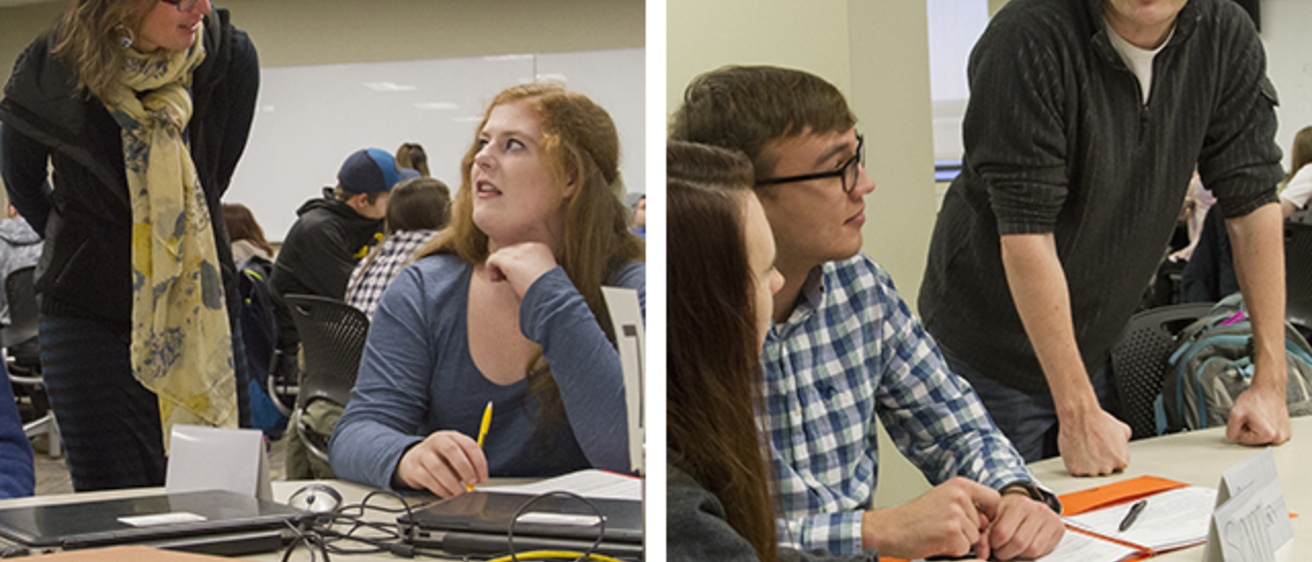As a parent of a current student, as a graduate of our institution, or as a member of the Iowa City community, you may have wondered about the benefits undergraduate students get from attending a large, multifaceted research university such as the University of Iowa.
Origins of the Universe, Earth and LifeHistory and Science of OilCreativity for a LifetimeInformation, Society, Culture
A few of the current Big Ideas courses include (taught by an astronomer, a geologist, and a biologist); (a historian and a geologist); (an artist, a writer, and an educational psychologist); and (a political scientist and a classicist).
Being at an institution with nearly 5,500 faculty members in 11 colleges and representing more than 200 areas of study, it might seem that a student could easily feel overwhelmed. Yet, it is this diversity and breadth of study that provides a robust educational foundation for the citizens of tomorrow.
The broad academic experience required by our undergraduate colleges and taught by faculty who are active in their research contributes to the public good and gives the UI’s students the tools they need—an understanding and appreciation of the arts, sciences, humanities, and social sciences—to consider complex ideas from a variety of perspectives, no matter what their future career may be. In fact, the current generation of students is likely to change careers multiple times during their adult working lives. Through this broad education, our undergraduates acquire the foundation they need to be flexible and to be better citizens and neighbors.
For these reasons, we have created and piloted a series of introductory courses known as “Big Ideas.” These general education courses, which are open to all students, aim to enhance the success of undergraduates by focusing on timely and pressing topics that require insight from teams of faculty working across different fields, rather than from within the traditional confines of a single discipline. In many ways, the Big Ideas classroom mirrors the interdisciplinary research teams that exist across campus—and, importantly, the workplace of the future.
Big Ideas courses are also designed around inquiry-based learning styles, which require students to synthesize and apply information rather than simply memorize it. And student response to these courses has been very positive. Students report that the ability to engage with a variety of professors early in their college careers has had a positive impact on their experience at the UI. In addition, students note the multidisciplinary approach helped them to better retain and make use of the knowledge they gained in the Big Ideas Courses.
More than 1,000 students over the last five years have taken a Big Ideas course, and our goal is to have over one-third of all incoming UI students take at least one Big Ideas course as a way to fulfill their General Education Program core curriculum requirements. Big Ideas courses allow our graduates to prepare for their futures. In a time when anyone can access the entire knowledge of the world from their smartphone, future leaders will be those best able to take that information, critique and filter it, and use what’s left in a creative, forward-thinking way. The biologist E.O. Wilson sums it up best:
“We are drowning in information, while starving for wisdom. The world henceforth will be run by synthesizers, people able to put together the right information at the right time, think critically about it, and make important choices wisely.”
The University of Iowa’s Big Ideas courses (as an important and vital part of the university’s General Education Program curriculum) are designed to lead their students into the future.
Editor’s note: Cornelia Lang, departmental associate chair and associate professor in the UI Department of Physics and Astronomy, and Andrew Forbes, associate professor in the Department of Biology, co-teach the Big Ideas course Origins of the Universe, Earth and Life.
